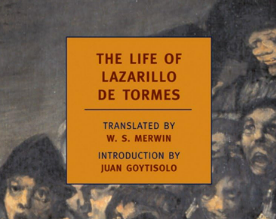Chapter VIII: In Which Lazaro Tells of the Friendship He Struck up in Toledo with Some Germans and What Happened to Them
byChapter VIII follows a moment in Lazaro’s life when luck seemed firmly in his favor. In Toledo, he enjoyed a stretch of comfort unlike anything he had previously known, thanks to his close friendship with a group of Germans who had taken a liking to him. Every day, he walked the streets carrying a shining pan of fruit—glistening pears, tender figs, and sugared plums—that not only delighted the eye but advertised the delicacies he helped distribute. His visibility made him known, but it was his generosity that made him liked. With every offering he shared, his circle of support grew. People spoke highly of him, from the merchants at the corner stalls to traveling nobles. For the first time, he felt that if misfortune ever returned, he would not face it alone. That belief, born from the kindness of others, gave him a rare sense of security.
These friends welcomed him not as a servant, but as an equal. When they dined, it was as one unit—food, laughter, and expenses were shared with enthusiasm. Lazaro tried many times to offer money, but his attempts were always met with smiles and firm refusals. “We are together,” they would say, “and what is ours is yours.” Their kindness went beyond the taverns and into his home. They sent him away each time with his pockets and arms full—roasted lamb soaked in wine, thick hunks of bread still warm, and cured meats so fragrant they made the house smell of feasts for days. His wife, once used to rationing crumbs, now prepared hearty meals with ease. For a man shaped by hunger, every bite felt like a blessing, and every friend like a guardian sent from above. Lazaro often lifted his eyes and thanked God for such a turn in his fate.
But he also knew, as he always had, that fortune does not settle in one place for long. The court, whose presence often dictated the rhythms of the city, announced a relocation. This change, though not unfamiliar, meant Lazaro’s cherished group would scatter—some heading to Valencia, others toward Seville, and a few back to their homeland. As they packed, they begged him to join them, offering promises of continued joy and shared wealth wherever they went. Lazaro stood torn. A part of him longed to remain in the comfort of Toledo’s familiar streets. Yet another part knew well that when fortune calls, it does not always do so twice. He had once followed the scent of war to Algiers; perhaps now he was being asked to follow the scent of fellowship elsewhere.
The decision hung heavy on him—not just for what he would gain, but for what he might lose. Comfort can be a trap, and Lazaro, wiser now, feared becoming too dependent on one version of life. The friendships, real as they were, might not survive distance. But neither could they be guaranteed to last unchanged if he stayed. Still, the memory of their warmth remained, stitched into every full belly and generous word. He looked at his wife, his table piled with meats, and knew that gratitude did not mean obligation. He had received much, and if it ended now, he would remember it as a miracle, not a right. Even in his doubt, he understood that this moment—this stretch of prosperity—was a rare pause in a life of struggle.
Through this chapter, Lazaro reflects not just on abundance but on the fragile thread that ties it to time. What he had was real, but not permanent. His tone carries joy, but it is tempered with awareness. Prosperity, he implies, should be held like water in cupped hands—not clutched, not wasted, but appreciated while it lasts. And that is what defines him: not a refusal to enjoy fortune, but a refusal to forget that it shifts. He steps forward not in fear, but in readiness, knowing that life will not always be a full plate—but knowing, too, that he has tasted one.

